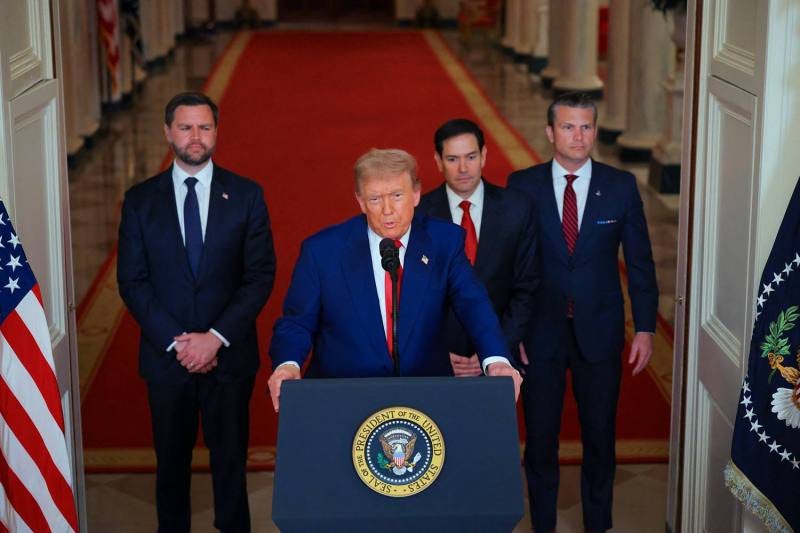There’s a cheesy quote lots of people have written in cursive on pieces of driftwood and hanging over the sunroom in their cottages: “Dance like nobody’s watching, sing like nobody’s listening, love like you’ve never been hurt.” It’s meant to inspire you to live freely, unburdened by fear or shame.
But in the real world, where screenshots are forever and one wrong text can land you in a courtroom, a more apt version might go like this:
Dance like everyone has a camera, sing like it’s already on TikTok, and post in WhatsApp group chats as if it’ll be Exhibit A in a defamation suit.
Because here’s the thing no motivational poster will tell you: your legacy is already being written. And it’s being written by your actions, your words, and yes, even your dumbest tweets from 2011. We’re all now curating a real-time museum of ourselves. Exhibit by exhibit. Status update by status update. You don’t get to control what people remember about you, but you do get to control what you leave behind.
Legacy used to be a reflection of a life lived in full. Now, it can be a snapshot from your worst moment, zoomed in and filtered through a thousand editorial lenses. And I would argue that nowhere is that truer and more instructive than in the story of Binyamin Netanyahu.
Binyamin Netanyahu
Bibi has spent his entire adult life playing the long game. With a political career stretching over four decades, and more cumulative time in office than any prime minister in Israel’s history, he has been many things: the father of Israeli economic liberalization, a hawkish defender of national security, a divisive populist, a global spokesman for Zionism, and, increasingly in recent years, a man desperately trying to manage the opening line of his obituary.
Let’s talk about that first line, that economy of words that reduces a life to a headline.
For a time, Netanyahu’s line seemed destined to read: “Israel’s longest-serving prime minister and a pillar of the country’s right-wing resurgence.” But legacy is never static. With the devastating October 7 attacks, an unimaginable intelligence and security failure that quickly dwarfed Golda’s failure to act in October ‘73, another line carved itself into stone: “The prime minister who failed to prevent the deadliest attack on Jews since the Holocaust.” It doesn’t matter how many speeches you gave, or how many terror tunnels you destroyed in the past, in the end, history has a cruel way of boiling down complexity to cause and effect. And the cause, many believe, was a distracted government too consumed with judicial reform, internal divisions, and political survival.
Then came the corruption trials. Allegations of bribery, breach of trust, and influence-peddling that once seemed like political noise started to calcify into judicial history. He became not just a statesman, but a defendant, fighting not only for his job, but for his reputation, for what future generations would remember. A sort of Olmert 2.0 (though he was never the politician Bibi is, and Olmert’s legacy is now closer to that of traitor to the Zionist cause, then anything else).
But legacy is a stubborn thing. It’s not just damaged by scandal; it can be reshaped by boldness.
War with Iran
And that brings us to the most recent and most consequential move of all: the preemptive strike against Iran’s nuclear infrastructure. A decision that appears to have been coordinated quietly but decisively with the United States and President Trump.
For Netanyahu, this was the final domino. The culmination of a career defined by a singular obsession: to prevent a nuclear Iran. A goal that shaped his every major speech, from the UN’s cartoonish bomb diagram to his dramatic address to Congress in 2015. Say what you will about his politics, this was the mission that animated him long before he became prime minister. It was always his raison d’être.
And now, in what may be - and I would argue should be - the twilight of his career, he has finally succeeded. Intelligence sources suggest that Israel, with American support, delivered a massive blow to Iran’s nuclear program. Not a symbolic strike, but a meaningful setback. With this weekend’s attacks by the Americans, many are hailing the end of Iran’s nuclear program. And perhaps even a regime on the brink. This is not without risk. The retaliation, the global fallout, the international scorn, are all real. But the existential threat to Israel was more real.
And what of Trump? He may never get credit from the Pulitzer set and the Never-Trumpers (which, I will readily admit, I was always a part of), but his decision, whether out of strategy, legacy calculation, or sheer impulse, was one of historic weight. Not just for American foreign policy, but for Jewish survival. Today, I am terribly thankful for President Trump and his decision this weekend. For a man whose own obituary has many potential openings (“The first U.S. president impeached twice,” “The president who tried to overturn an election,” or “Reality TV star turned leader of the free world”), perhaps now he’s earned a line that will stand above the noise: “The president who partnered with Israel to end the Iranian nuclear threat and dismantle the Axis of Terror once and for all.”
Lessons of legacy
There is a lesson here, and it is one deeper than geopolitics or PR spin. Legacy isn’t about perfection, but rather it is about priorities. It’s about choosing what hill you’re willing to die on, and what mission you want etched on your tombstone. Most of us thankfully won’t lead countries or wage war. But all of us have to decide what values we’ll be remembered for, and whether our final chapter redeems the messiness that came before.
Most normal people, myself included, want one simple line as the first line of our obituary: “A good person, missed by family and friends whom he loved, and who loved him dearly.” But that’s not what statesmen and those in the public eye get. The line about their loved ones and family members comes second or third, but it is their resiliency, their corruption, their bravery, or their cowardice, that usually defines their statements.
In a world obsessed with immediacy, legacy demands foresight. And humility. Because we don’t get to write our own eulogies, other people do. All we can do is give them better material to work with.
So go ahead: dance and sing and love like the posters tell you. But also live with legacy in mind. Text like it matters. Comment like it’s permanent. Because it is.
And I’m begging you: please be wary of what you post on social media and on WhatsApp groups. Write but before you hit send, take a beat, re-read it, and think: is this something that I absolutely need to write, and will it hurt me if others who are not part of this group see what I am writing? Sometimes what you don’t write is more important than what you do.
And as for Netanyahu, the first line of his obituary may still be evolving. It may read as a tale of redemption, of a man who, despite failures and flaws, delivered the ultimate blow to Israel’s greatest enemy. Or it may not. But one thing is certain: he wrote it himself, every single day. And so do we.








Bravo Adam! What an insightful and thoughtful piece!
One of my favourite of yours👍
Another brilliant piece Adam! Love the bit about that criminal Olmert - he really is a traitor.
Bibi and now Trump have shown to be men of action.
A whopping 83% of "Jewish" Israelis are behind him. That's almost impossible.
History will show that they did what needed to be done.
It's really cool watching history happen in REAL TIME.
Too bad we have to run to the shelters multiple times a day.
This too shall pass.